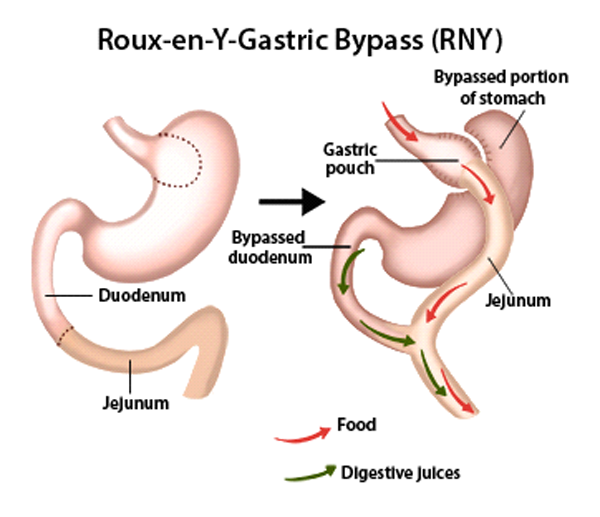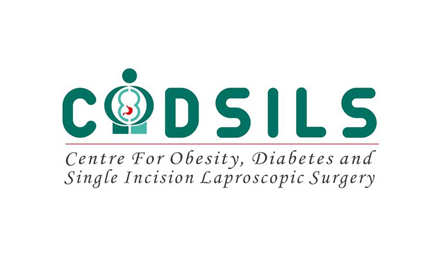
Laparoscopic Roux-En-Y Gastric Bypass (Metabolic)
Laparoscopic roux-en-Y Gastric Bypass is a reversible weight loss procedure that reduces the size of your stomach to a small 30cc pouch and making food bypass the beginning of the small intestine. This reduces your appetite and makes you feel satiated with smaller portions. LRYGB can help you lose up to 60 – 80% of your excess weight in a period of approximately 2 years
FOR MORE INFORMATION
Less
Frequently Asked Questions
Is Gastric Bypass a Good Choice for Me?
You should first know the risks and benefits of all common bariatric procedures. For high-risk patients and super obese patients, we advise LSG as a first-stage procedure prior to gastric bypass. Ultimately, the decision regarding which procedure to perform is based on each patient’s operative risk and their expectations and goals for surgical weight-loss and is decided by a bariatric surgeon.
How long is the surgery? Is it painful?
Laparoscopic gastric bypass takes about 120- 150 minutes to perform and requires 2-3 nights in the hospital post-surgery. During the surgery you will be under general anesthesia and won’t feel any pain.
What precaution do I need to take after the surgery?
After LRYGB, you will be able to eat less because of small stomach pouch. You have to eat small bites and chew the food in mouth properly before you swallow it.
Eating sweets, high carbohydrate diet, eating too much and drinking water after food can cause ‘dumping syndrome’. It occurs as a result of food passing too quickly into the intestine. The symptoms of dumping syndrome are: Nausea, diarrhea, weakness, vomiting, palpitations, sweating and a sense of fullness accompanied by discomfort. The best treatment is to keep a note of problem foods and avoid their intake. Dumping syndrome often improves on its own without medical treatment or after adjusting your diet.
Avoid smoking as it can cause marginal ulcers.
What are the Risks of Gastric bypass?
Complications that can happen include a leak from the site of anastomosis i.e. gastrojejunostomy and jejunojeunostomy resulting in an infection or abscess, deep venous thrombosis or pulmonary embolism. Internal herniation can happen because of the mesenteric defects created even though both the defects are closed during surgery. However, at our center, the total complication rate is less than 1% which is similar to other procedures, like a gall bladder or hernia surgery.
Do I need to take bed rest after the surgery?
We encourage you to walk 3-4 hours after the surgery as being active and mobile reduces the risk of deep vein thrombosis. On third day, you are discharged from the hospital and you can return to work within a week.
How long will it take before I can see results?
The patient will lose 60 – 80 percent of their excess weight in the first two years after the procedure. In first 3-4 months, weight loss is the maximum, after which the rate of weight loss slows down. It further depends on initial BMI the patient and patient’s willingness to follow health lifestyle and eating habits.
What will be my diet after the surgery?
You will need to be on a liquid diet for first 15 days after the surgery. This is followed by 15 days of semi-solid foods and then you progress onto solids. Within 2 to 3 months you can have all kinds of foods though in limited quantities
WHAT IS THE COST OF LAPAROSCOPIC ROUX-EN-Y GASTRIC BYPASS SURGERY?
Gastric Bypass surgery cost varies from 2.5 lakhs to 4 lakhs based on the patients BMI, comorbid conditions, room category & hospital choice.


